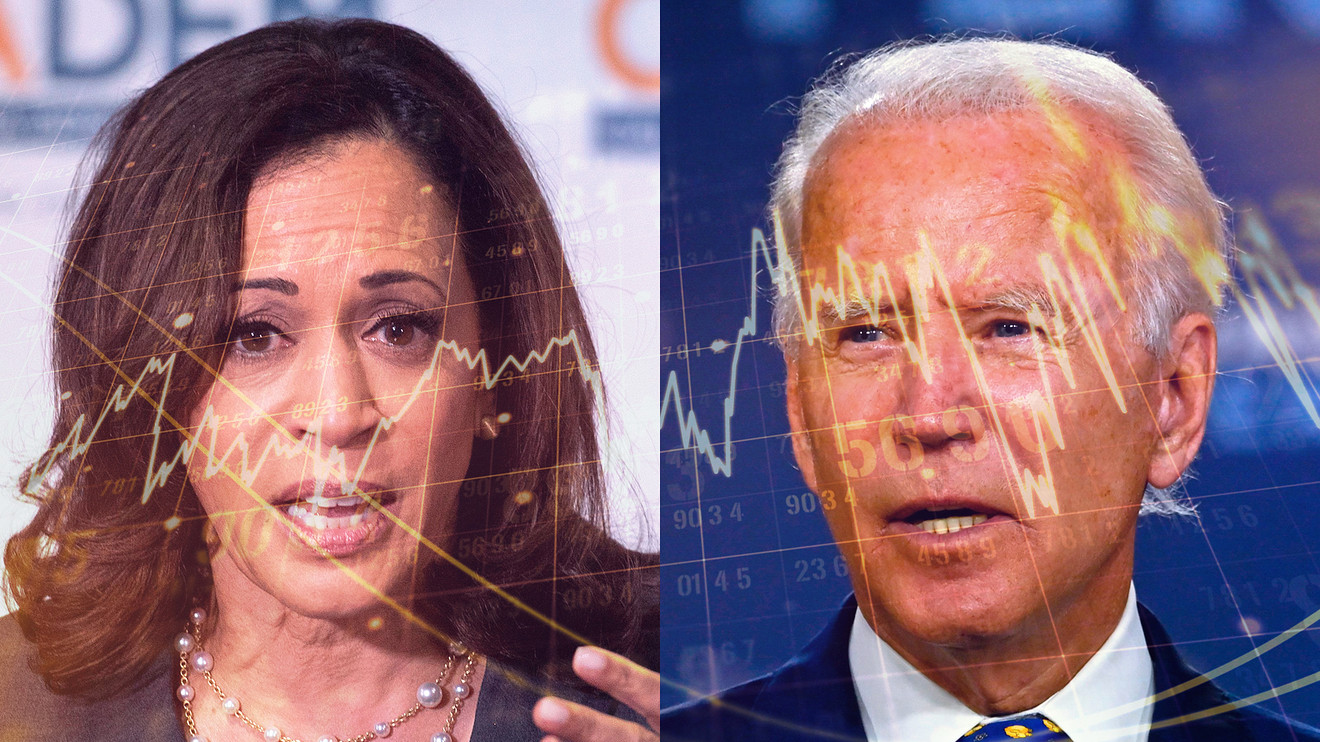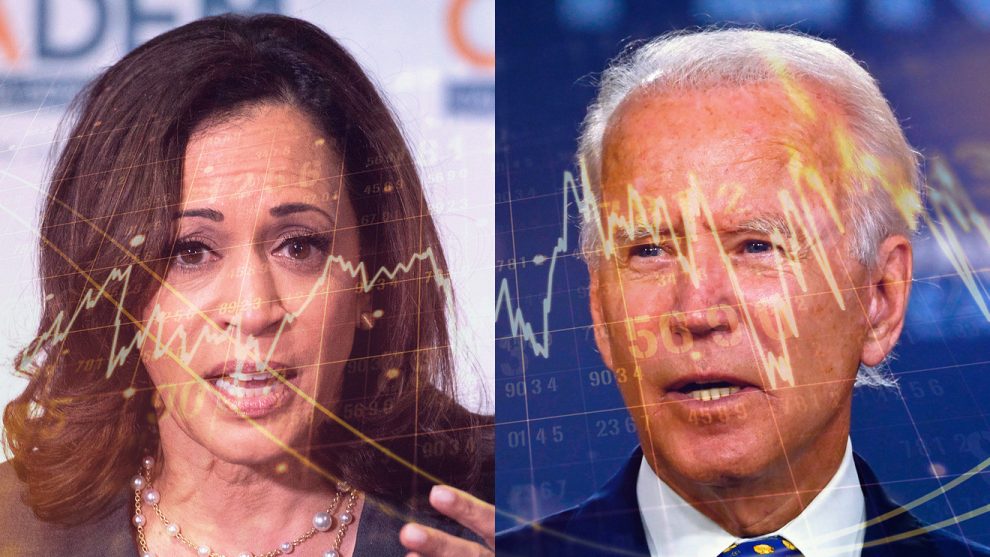
Presumptive Democratic presidential nominee Joe Biden announced Tuesday that he has selected California Sen. Kamala Harris as his running mate in the race for the White House against President Donald Trump and Vice President Mike Pence.
The markets have been unperturbed thus far about the pick of the first Black American woman and the first person of Indian decent to appear on the ticket of a major national party—and, perhaps, for a good reason,
The vice presidential candidate isn’t normally a make-or-break selection in the campaign for the Oval Office. Running mates are selected to complement the top of the ticket, but in this case, questions of whether Biden is willing to go beyond a four-year term may have raised the stakes.
Biden, who is 77, would be 78 years and 61 days old when he takes the oath of office in 2021, should he prevail against Republican Trump. Harris is 55, and market participants may be viewing her as having a greater chance of eventually influencing financial market policy.
Notably, Biden holds a 6.9 percentage-point lead over Trump in an average of national polls, according to RealClear Politics, suggesting that his chances of winning the election on Nov. 3 are better than average, if the polling data are an accurate reflection of ultimate outcomes.
On Wednesday, less than 24 hours after the Harris’s selection by Biden, the stock market was climbing. The Dow Jones Industrial Average DJIA, +0.94%, the S&P 500 SPX, +1.44% and the Nasdaq Composite COMP, +2.25% indexes were all headed solidly higher, on the back of hope for vaccines to battle the COVID-19 pandemic and optimism about further stimulus from the government to help laborers who have lost jobs due to business closures to curb the spread of the deadly illness.
The gains weren’t because of Harris, to be sure, but market participants say that Biden’s selection, one that had been widely telegraphed, perhaps, eases fears of a candidate that could have been viewed as less market friendly, experts told MarketWatch.
Chris Larkin, managing director of trading and investment product, at E-Trade Financial Corp. ETFC, +1.05%, said that “there’s a bit more certainty around what a Biden administration would look like, with Harris joining the ticket, who no less is understood as a moderate by the Street.”
Some analysts said that markets may have been heartened by Biden’s decision to not pick a progressive candidate like Massachusetts Sen. Elizabeth Warren, who is seen by some as a negative for stocks and the banking industry in particular.
Andrew Adams, analyst at Saut Strategy, said “[Harris] was the betting favorite and seems to be more palatable to the market than someone like long-shot Elizabeth Warren would have been from what little I’ve read.”
Bespoke Investment Group’s researchers wrote in a Wednesday note that “while the selection [of Harris] isn’t likely to provide much of a boost for Biden, at this point it likely won’t hurt him either,” and that could be read as not likely to hurt the market either.
That said, Harris’s selection does have some specific implications for the stock market and financial markets broadly, given her stance on taxing trading. “I would tax Wall Street stock trades at 0.2%, bond trades at 0.1%, and derivative transactions at 0.002%,” Harris said when she was a candidate for the Democratic presidential nomination. Harris had said the transaction tax would raise $2 trillion over 10 years, and Biden has expressed some support for those ideas.
She has advocated for an expanded version of Medicare, popularly known as “Medicare For All,” and she has made the case that Wall Street can pay for it in part via taxes on trading.
It is important to note that the market is fickle.
VP candidates aside, market participants had spent considerably amounts of time hand-wringing about the possibility of a Biden candidacy up until recently.
JPMorgan strategists have said that a Biden win in November would be “neutral to slight positive” for equities. The Democrat’s major economic policies include lifting the corporate tax rate from 21% to 28% — partially reversing the Republican corporate tax cut of 2017 — and increasing the federal minimum wage. The investment bank’s U.S. equity strategy team also says it expects the former vice president to ease tariffs on China and increase infrastructure spending, which could assuage market fears about rising Sino-American tensions.
Market participants caviled about the potential Trump victory back in 2016, up until the point that the 45th president actually secured victory over Democratic candidate Hillary Clinton in a stunning outcome and the market preceded to surge on the view that the real estate billionaire would be friendly to business.
Another point worth noting is that the overall impact of a candidate may not be as significant as the timing of their presidency.
Barack Obama became president in the aftermath of what was then the worst financial crisis since the Great Depression in 2008-09, and helmed a recovery for the overall economy and the markets, while whomever is elected president will preside over the fallout from the worst public-health crisis in generations and a rising stock market that seems disassociated from the economic calamity created by the pandemic.
Trillions of dollars have been spent by the government to help ailing businesses and out-of-work Americans and interest rates are at or near 0% while the unemployment rate is at 10.2%.
In the end, the circumstances may have a greater influence over the market than who is in the Oval Office or the person who serves as that leader’s No. 2.











Add Comment